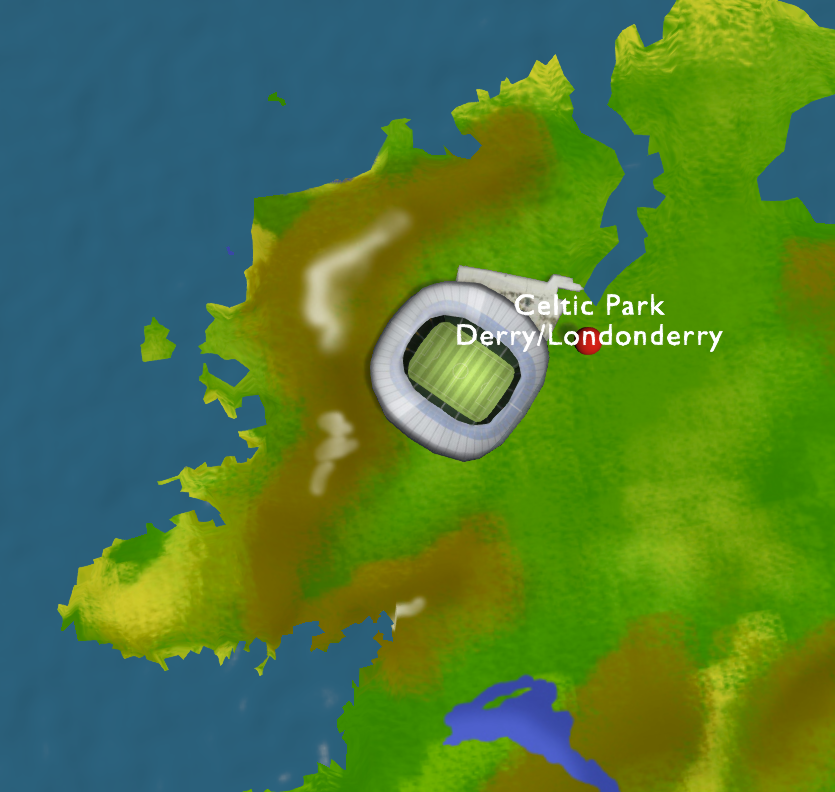Last week’s surprise decision to grant the 2023 Rugby World Cup (RWC) to France was a huge disappointment for the Irish, who had been bookies’ favourite throughout the process.
As the dust finally settles on the five-year effort to bring one of the world’s largest sporting events to these shores, here are six key lessons we can draw from the experience :
- Ireland CAN hold events of global significance.
The positive message for Ireland in a disappointing process was that World Rugby’s independent evaluation report confirmed that we are indeed capable of running an event of that magnitude. That report’s Executive Summary described all three bids as “outstanding” and concluded that “…any of the three candidates could host a successful Rugby World Cup”. We didn’t lose out in the process because we weren’t up to the job. We just paled in comparison to two significantly larger, more experienced and more proven competitors.
- Our Infrastructure & stadia let us down.
It was no surprise that Ireland lost points in the independent evaluation report for its lack of big tournament experience. But there were two further areas where our bid could have been stronger.
The first was for ‘Tournament Infrastructure’. In just the Transport sub-category within that alone, where the desired standard was to have infrastructure “…that can cope with the demands of a Rugby World Cup”, Ireland scored almost 2 full percentage points behind the other two bidders (out of the 100 points available across the entire evaluation exercise).
The second area where we fell short was for “Venues and host cities”. Almost a third of all the points available to bidders in the independent assessment exercise were allocated through this category, and we came last – almost 5 percentage points below South Africa. That was with the report working on the flawed assumption that a 34,000 capacity Casement Park Belfast would be ready in Belfast by 2020 (when it currently has neither planning permission nor a government to fund it) which doubtless boosted our form artificially here. The rejection of Ireland’s RWC bid will hopefully now lead to the scaling back of a stadium which otherwise threatens to become a publicly-funded white elephant.
The major investment required to get the majority of stadia in Ireland’s bid ready for an RWC was flagged in the report as a significant risk. World Rugby required bidders to identify 8 match venues capable of hosting games across 6 host cities. Ireland’s bid outlined a long-list of 12 potential stadia across 9 towns and cities, which would be whittled down if we’d been selected. Of the six hosts cities identified in the Irish bid as its short-list choice, the majority were obvious picks – Dublin, Belfast, Cork, Limerick and Galway. But Killarney (population 17,000) was a very strange addition as our sixth choice of host ‘city’ in which to accommodate a global sporting event. A more obvious alternative would have been Derry – Ireland’s fourth largest city, with a solid record of hosting big sporting and cultural events. However, Derry’s only stadium of note – the 17,000 capacity Celtic Park – was the smallest in the Irish bid, and therefore dropped in favour of Killarney with its 26,000 capacity venue instead. The evaluation report specifically referenced the small size of Killarney, so its involvement clearly impacted the Irish bid. But with our regional stadia so poor, the Irish bid team may have felt they had little room to manoeuvre in their choice of a sixth host city.
- Professionalism has Removed Rugby’s Uniqueness.
Rugby likes to view itself as more honourable than other sports – as echoed in the old quip that it’s “a hooligans’ game played by gentlemen”. This was reflected in the Executive Summary at the start of World Rugby’s independent evaluation report :
“Rugby differentiates itself from other sports on its values, and particularly integrity and respect. Upholding these values has been an important part of the host selection process”. (Paragraph 3, Page 4, RWC 2023 Host Selection Process Evaluation report).
The new process used to select a host nation for 2023 has exposed that as deceptive self-flattery. In the decades since professionalism was embraced, Rugby Union has followed the same broad trajectory as other professional sports globally – where money increasingly calls the shots and victory becomes the all-consuming priority. World Rugby chose an independent evaluation process for selecting the 2023 tournament host in an attempt to make the choice more transparent and less open to criticism (motivated by the controversies that have engulfed recent FIFA World Cup and Olympic Games selections). When it came to decision time, however, the voting nations ignored the recommendation of very process they’d signed up to in advance and selected France over South Africa. The prevailing sense it that the French effectively bought the tournament.
Rugby should accept that professionalism has changed its culture and quietly drop this view of its own ethical exceptionalism. If it’s not prepared to do that, it should instead seek to genuinely re-assert and preserve that ethos – starting with an end to selecting tournament hosts by secret ballot. Such secrecy only aids horse-trading and duplicity – and is pointless, as bidding nations usually discover who voted which way anyway. And if rugby really is intent on growing the game beyond its very limited heartlands (it could be argued that barely a dozen nations in the world currently take the sport seriously), it should also stop awarding the right to host its showcase tournament almost exclusively to a small group of countries.
- We Should Try Again.
If Ireland addressed some of the key failings identified in the independent evaluation report, there is no reason why the nation wouldn’t be in a much stronger position to bid for the tournament again. Securing & exhibiting big event experience will be the trickiest task within this, but could still be done with a focus on packing the island’s CV with events in sports like golf, football etc.
What can be more directly addressed is our transport and stadia infrastructure. The island of Ireland has a population of over 6.5 million people, yet our infrastructure and venues pale in comparison to some smaller nations – particularly New Zealand. It is also an island nation with few natural resources located on the edge of a continent, and with a population of only 4.7m it is almost identical in size to the Republic of Ireland. Yet over the years it has successfully hosted major global sporting events like the Rugby Union World Cup, Rugby League World Cup, the Commonwealth Games, the America’s Cup and the Volvo Ocean Race. The Kiwis have built up both good transport infrastructure and excellent sporting facilities over time. The Republic of Ireland only began modernising its infrastructure in the Celtic Tiger boom years, only for the breaks to be applied firmly afterwards. Meanwhile, Northern Ireland’s infrastructure beyond Belfast is very poor. And on stadia – until recently Ireland had barely any that could be considered of high quality, let alone world class. There are now two international-standard stadia in Dublin (Aviva & Croke), two in Belfast (Windsor & Ravenhill) and one in Limerick (Thomond). But that is it for the whole island. Regional stadia in Ireland tend to be owned by the GAA, whose approach has traditionally been to build one good stand within otherwise rudimentary facilities. Spending millions on Casement Park in Belfast and Dalymount Park in Dublin (as much as the latter is genuinely needed) will do nothing to aid Ireland’s chances of landing a major tournament in future. Only a strategic focus on improving the standard of facilities outside the island’s two main cities will put Ireland in a position to genuinely compete for major events again in future.
- It May Have Been Our Best Shot For a Generation.
It is only a matter of time before the USA bids to host a future Rugby World Cup, and that time is probably close. With their huge population, infrastructure, world-class stadia and strong commercial appeal they will be a shoe-in for selection when that time arrives. Likewise, the Argentinians will doubtless bid at some point, as will the Italians (who initially had their hat in the ring for the 2023 hosting rights before withdrawing). Three large nations very capable of making a success of the event, whilst opening up new frontiers for rugby globally. Ireland may find it has to wait another 20 years before it can even get close to having a genuine shot at landing a Rugby World Cup again.
- The IRFU don’t know where Derry is.
The North-west of the island is used to being forgotten by the powers-that-be north and south. The folk at Lansdowne Road have taken this a step further, however, by not even knowing where Ireland’s fourth largest city is. They believe Derry city is located in Donegal – and not just by a little bit, due to some forgivable border-related confusion. They think Derry is based 20 miles west of its true location, sitting where Letterkenny should be. At least that’s what they’ve been telling the world for the last few years on the map of stadiums included in their bid (see image).
The group which successfully lobbied to secure a place for Derry in Ireland’s bid (the ‘Derry For 2023’ campaign) contacted Irish Rugby a number of times to point this clanger out to them. Yet it remains unchanged on their website even to this day. It’s a good thing World Rugby’s evaluation report didn’t dock marks for schoolboy geographical errors and embarrassing bungles. ‘Irelande – Nul Pointe’ on this one, lads.

Steve Bradley is a commentator and regeneration consultant from Derry. He can be followed on Twitter: @Bradley_Steve
Discover more from Slugger O'Toole
Subscribe to get the latest posts to your email.
